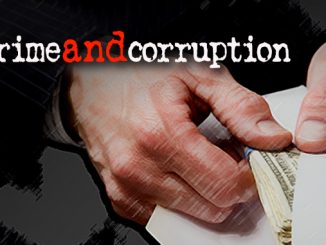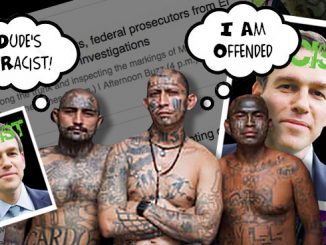
Watergate “hero” Bob Woodward has always relied on dubious investigative tactics but now asks us to “trust him” that the anonymous quotes in his new anti-Trump book are true and trustworthy.
Publisher Simon & Schuster reported that Bob Woodward’s newest book, Fear: Trump in the White House, sold over 750,000 copies on its first day in print. Woodward skeptics and Watergate revisionists still question Woodward’s monarchical hold on modern journalism and publishing. In this issue, S. T. Patrick begins a series that will spotlight the questionable tactics and little-known fallacies of Bob Woodward’s journalistic career.
By S. T. Patrick
Implicit in the “Note to Readers” that opens Bob Woodward’s newest book, Fear: Trump in the White House, is an act of faith. Woodward wants the reader to trust him. “Interviews for this book were conducted under the journalistic ground rule of ‘deep background,’ ” Woodward writes.
Woodward, now an associate editor with The Washington Post, then defines “deep background.” He can use all information gathered from “hundreds of hours of interviews” with “firsthand participants and witnesses” whose names you’ll never know. In case the reader questions his accuracy in repeating these quotations and stories, Woodward then informs the public that “nearly all” of the interview participants have allowed him to record the conversations “so the story could be told with more precision.”
It is not clear how many interviews were actually conducted, nor is the specific percentage of recordings referred to as “nearly all.” This is important, because there is no evidence accompanying those unrecorded interviews. The interviewee would surely deny them, and the accuracy of such reports hinges on the reporter’s own trustworthiness. This is but one of the many problems with “deep background,” a journalistic information magnet strategy Woodward popularized during the Watergate era. Today, every interviewee for Fear is a Deep Throat.
Even when attributing exact quotations, Woodward admits that they may come from the person being quoted, but they may also stem from a colleague with direct knowledge or from someone’s meeting notes. But not all meeting notes are created equal, and because we do not know the source in many of these instances, we cannot question the motivations or backgrounds or prior relationships of the source attributing the quote, thought, or conclusion. Therefore, even the attributions are a cloudy haze of journalistic cloak-and-dagger games that Woodward mastered and legitimized to push his narratives to notable and profitable heights.
Fear is Woodward’s 19th book. His fame came from his Watergate reporting with co-author and fellow Washington Post journalist Carl Bernstein. That’s the story we are supposed to believe: It was the stellar work of a muckraking journalist that made him famous. The little guys hustled to bring down the Big Bad Wolves of Pennsylvania Avenue—the Nixon White House. All the President’s Men was released in 1974 and all the American stereotypes applied two years before the nation’s bicentennial: that hard work eventually triumphs, that good wins over evil, that David really can slay Goliath, and that the new Mr. Smiths going to Washington to speak truth to power are the journalists who work tirelessly to assure that truth reigns.
The problem with that red, white, and blue myth is that it was the stuff of Hollywood—literally. Woodward and Bernstein did not commit to writing All the President’s Men until actor Robert Redford had expressed interest in purchasing the film rights. In Telling the Truth About Lies: The Making of All the President’s Men, Woodward also noted that Redford urged “Woodstein” to change the narrative from a tale of Nixonian dirty deeds to one that was based on the journey of two journalists, Woodward and Bernstein. Redford would play the role of Woodward and Dustin Hoffman would play Bernstein. The film was nominated for Best Picture in 1976 but lost to Rocky. For Woodward and Bernstein, however, their careers were made. Redford and Hoffman perfectly portrayed everything Americans wanted their journalists to be, down to being sloppy dressers, coffee inhalers, and chain smokers. Most importantly, they were heroes.
The film adaptation of Woodward and Bernstein’s first book coincided with the release of their second Nixon-era exposé, The Final Days. This book was different only in that its heroes were former and current military men, frustratingly skirting protocol and even law solely in an effort to save the republic from a president who had become unhinged. More than in All the President’s Men, Woodward’s pattern of assessing presidencies would begin in The Final Days.
The hero of The Final Days was Gen. Alexander Haig, retired from the Army and someone who had climbed the national security ranks to become chief of staff after the resignation of H.R. Haldeman. After Woodward and Bernstein, the hero of All the President’s Men had been Woodward’s “deep background” source, Deep Throat. Though Woodward revealed—or at least informed us—in 2005 that Deep Throat was FBI Associate Director Mark Felt, Watergate revisionists knew more about the real Bob Woodward than the mainstream media was portraying and had good reasons to question the trustworthiness of Felt as the lone, chief or majority source behind the revelations attributed to Deep Throat.
Woodward had his own secret origin, and it was one that would alter the way keen students of history and the Watergate era viewed his faux heroism, his journalistic methods, the role of Haig, and the character of Deep Throat.
S.T. Patrick holds degrees in both journalism and social studies education. He spent 10 years as an educator and now hosts the “Midnight Writer News Show.” His email is [email protected]. He is also an occasional contributor to THE BARNES REVIEW (TBR) history magazine. For a sample copy of TBR, please send $2 to TBR, P.O. Box 15877, Washington, D.C. 20003 with your request. Editor’s choice. To subscribe to TBR magazine, send $56 per year inside the U.S. to above address.





